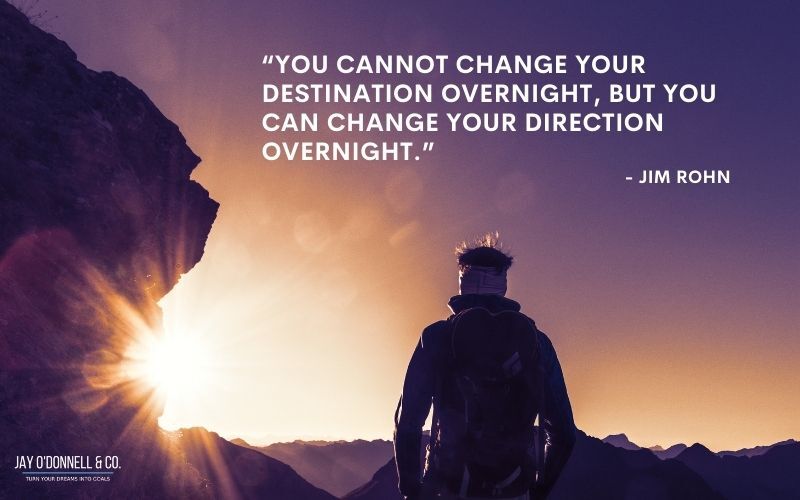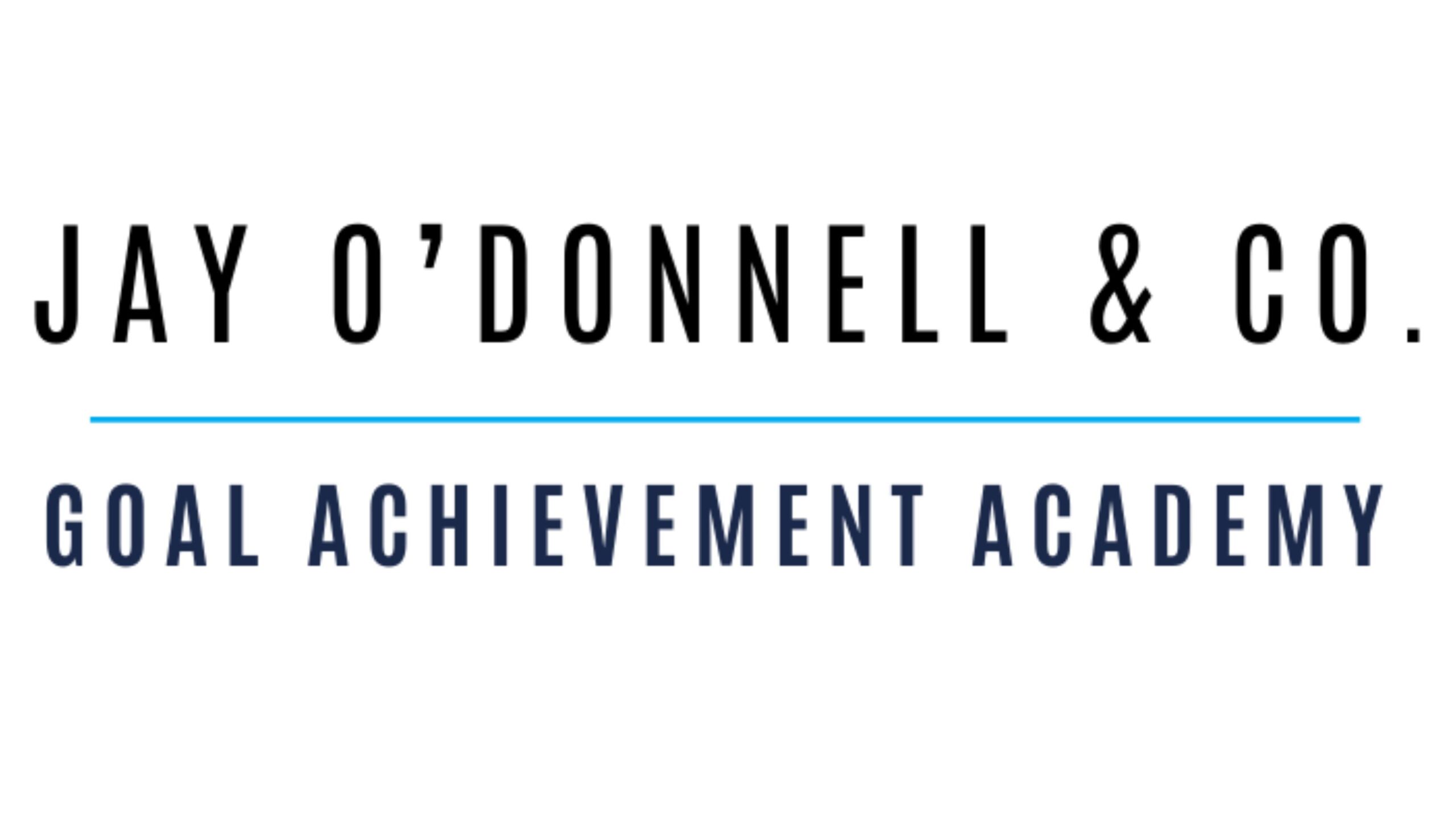In this post, you’re going to learn 17 of the most powerful goal tips to help you turn your dreams into goals and succeed.
We all have dreams in life.
We all have things that we’d love to accomplish.
With that being said—sometimes, figuring out how to succeed at the things we want to achieve isn’t always so obvious.
It can be challenging to figure out how to turn our dreams into goals, and then how to determine a process for achieving those goals and actually creating the life we desire.
So in this post, I’m going to lay it all out for you.
This is going to be a complete and in-depth guide containing 17 of my most powerful goal tips, along with instructions for how to use each one to help you succeed at creating the life you desire and making your dreams come true.
Listen, I’m a firm believer in the fact that anyone can make their dreams come true, as long as they use SMART goal setting principles, write their goals down every day, and stick with the process.
So let’s jump into the guide, and I’ll tell you everything you need to know.
17 Goal Tips To Help You Turn Your Dreams Into Goals And Succeed
1. Make Them Specific
It’s really important that we make our goals as specific as possible.
For example:
You may say that you have a goal to make more money.
This is obviously a very understandable goal—but it’s not very specific.
When you set such a goal, it’s much better to say something like this:
“I want to be earning $70,000 per year by December 31st of next year.”
This is a much more specific goal, and gives you a lot more information to work with.
Getting as specific as possible is important.
Keeping your goals too vague can really work against you by keeping your true vision for success fuzzy and undefined.
This is a SMART goal-setting principle that’ll supercharge your goal-setting efforts.
2. Make Them Measurable

The most effective goals are going to be goals that you can measure.
For example, returning to our income goal, if you just say “I want to make more money,” that’s not very measurable.
If you went on to make at least one extra dollar during the course of the rest of your life, that technically qualifies as making more money.
However, that’s probably not what you meant when you set the goal.
See, when you don’t include a metric for measuring the goal, it remains vague and difficult to visualize.
Once again, it’s much better to set a goal that says something like this:
“I want to make $70,000 a year by December 31st of next year.”
By attaching an actual numerical value to the amount of money, we can easily measure progress toward the goal.
We know exactly how many more dollars per week you’ll need to earn in order to reach your goal.
And this information gives you the framework you need to actually make a plan that’ll empower you to succeed.
3. Make Them Achievable
Here’s the thing about goals.
If you don’t believe they’re achievable, you’re highly unlikely to achieve them.
This is why it’s always a good idea to break big goals down into smaller, more manageable goals that you can absolutely see yourself achieving.
For example:
For someone who has never run a marathon before, the idea of running 26 miles all at once may seem absolutely unachievable.
It may or may not actually be possible for you.
But once again, in this situation, it’s the perception that matters.
However, let’s break this goal down into some smaller, more achievable steps, and see how that looks.
Instead of focusing on running all 26 miles—what if, instead, when you started training, you just focused on running 1 mile?
This is a much more achievable goal.
In fact, this would probably be seen as ‘achievable’ by nearly anyone.
So in order to train yourself to run 26 miles, all you really need to do is break that goal down into 26 1-mile portions.
Eventually, you can work your way up to running 2 miles per day.
Then 3.
Eventually, you’ll make it to 10.
And if you just keep going, that 26-mile goal that looked impossible at first will suddenly begin to take shape as being totally possible.
4. Make Them Relevant
Setting arbitrary goals just to set them is highly unlikely to meet with success.
Why?
Because if they’re not relevant to your life and what you want for yourself, you’re probably not going to care very much about them.
For example, if someone sets a goal to learn 20 different yo-yo tricks within the next six months—well, that may be an achievable goal.
But if that goal isn’t relevant to your life, and if you don’t really care about it, then you might ask yourself:
“What’s the point of this? How is this relevant or helpful to my life? And is it really worth the effort I’m going to need to invest in it?”
And guess what?
You’re right in asking these questions.
The truth is that this goal may not be directly relevant to your life and long-term goals.
And thus, it may not be a relevant goal that you should invest time and energy into.
It’s really important to make sure that your goals align with your long-term plans for your life.
Think about how you’d like your life to be in the future, and then set goals that’ll help you to turn your life into the life you’d like to be living.
5. Set A Deadline

It’s extremely important to put deadlines on your goals.
This makes them more challenging, but it also gives you a specific framework of time within which to accomplish them.
This helps you to establish priority for your goals, and to put energy into working on them as the deadline dictates.
For example, if you set a goal to earn $70,000 in income, but then never set a deadline—how will you know what progress you’re making?
And how will you know what plan you should create to make that goal a reality?
See, by that logic, you could, in theory, give yourself 20 years to reach the completion of that goal—when in reality, you may be capable of making it happen in a year or less.
When we set deadlines on things, our brains automatically interpret the priority differently.
When we see that a deadline is approaching, our brains are more likely to tell us:
“Hey, this important event requires your attention. The deadline is coming up, and you need to be ready for it.”
This helps us to accomplish goals faster and more efficiently—which is obviously better for overall progress.
6. Make Them Collaborative
If your goals involve other people, make sure that you include criteria in the goal that makes it ideal for collaboration.
This is especially important for businesses with multiple employees, sports teams, family goals, etc.
Humans are cooperative creatures.
And finding a way to work together to accomplish goals can definitely work to our advantage.
7. Make Them Limited
Goals should be limited in size and scope.
If a goal is too big, and/or if the deadline is stretching out too far, and/or if the goal is just overall a little bit bigger in scope than what feels achievable in a short term sense—it’s always better to break that goal down into smaller goals that have a more limited scope and duration.
This can help to make the goals easier to achieve and less psychologically challenging.
And this can actually help you to accomplish bigger goals in less time without getting overwhelmed.
This is a vital goal-setting principle in goal-setting theory.
It matters, and it’s important!
8. Attach Them To An Emotion

This is one of those often underutilized goal tips that can really supercharge your goal-setting efforts.
As humans, we’re much more likely to succeed at things if we have an emotional attachment to the outcome.
This really speaks to our passion and drive, and is incredibly important for the goal-setting process.
For example, when you tell yourself that you want to set the goal of earning $70,000 per year by December 31st of next year, you may also want to ask yourself:
“Why do I want to accomplish this goal?”
Then, write down the answer.
Answering the ‘why’ behind your goals can give you added clarity, and empower you in engaging your passion in achieving that goal.
You could answer it with something like this:
“I want to increase my income so that I can provide a better living for my family, buy my kids nicer clothes, and be able to take my wife out on date nights more often.”
When you hone in on the ‘why’ behind the goals, you can tap into those feelings that you can look forward to upon completing the goal—and this is a huge motivator.
9. Break Them Down Into Smaller Steps
As we’ve already discussed a few times already, breaking larger goals down into smaller steps is always a great practice.
If a goal feels at all like it’s a little bit too big to be believable, or is so large that it feels even slightly overwhelming, it’s always better to break that goal down into smaller, more achievable steps.
For example, instead of setting a goal to renovate your living room, which may seem overwhelming when you think about all of the different parts of the process at once, you could break it down into smaller steps that look like this:
- Paint the walls
- Replace the trim
- Replace the flooring
- Replace the fixtures, etc.
See, each of these tasks seems much more doable on its own than the whole overarching task of renovating an entire room.
This just makes the goal feel more achievable, which makes it more likely that you’ll actually make a plan, get started, and work to achieve it.
10. Make Them Refinable
Whenever you set goals, there’s a chance you’re going to run into challenges and unforeseen obstacles while attempting to achieve them.
This is a pretty normal part of the process.
In fact, this is so normal that you should probably expect it.
How do you deal with it?
Well, it’s important that you keep your goals refinable.
In other words, leave room to revise your plan and adapt as you go.
See, when you face challenges or setbacks—the key isn’t to give up.
The key is to slightly revise your plan so that you can overcome the challenges and continue forward.
Some people are resistant to refining their goals because they get stuck in only one frame of thinking.
But being able to analyze, review, and then adapt your goals to help create a better solution is actually a huge strength.
11. Make Sure That You Understand Them

If you don’t completely understand a goal, you’re going to be severely limited in your ability to see it through to completion.
And this can really take away from your odds of success.
When you’re trying to set a goal that you don’t fully understand, it’s always a good idea to do some research to try to figure out exactly how it’s going to work; from beginning to end.
In other words:
- Plan out the process
- Write it down step by step
- And make sure that you understand each step
This will give you a huge psychological advantage, help you to stay motivated, and just in general empower you to create a plan that actually works.
12. Make Them Challenging
Goals should be achievable, but they should also challenge you.
If you make all of your goals super easy, it’s highly likely that you’re not going to be working at maximum efficiency.
You’re going to be holding yourself back by not challenging yourself to the fullest extent possible.
Setting easy goals is better than setting no goals.
But the most efficient and best way to move your life forward and achieve your dreams is to set goals that are both achievable and challenging at the same time.
This will ensure that you’re always performing at your highest possible level, and that you’re making as much progress as quickly as you can.
13. Make Sure That You’re Committed
Many people set goals only to give them up a few days later.
This happens all the time with New Year’s resolutions.
See, whenever you’re setting a goal, it’s really important that you make it a commitment.
- You want your life to change.
- You want your life to be better.
- You want to achieve a certain objective.
And the only thing stopping you is your own willingness and determination to create the goal and see it through to completion.
This is why commitment to your goals is so important.
Writing down your goals can really help with this.
Getting an accountability partner can also help.
But at the core of it all, before you’ll be willing to do any of these things, you’ll likely need to commit to the goal and make sure that you’re willing to do what it’s going to take to see it through to completion.
Hey, sticking with goals isn’t always easy.
It’s hard work sometimes.
And committing to it is really the first step to protecting yourself from giving up and abandoning them halfway through.
14. Gather Feedback On Your Progress

As you begin the process of striving to achieve your goals, it’s important to gather feedback.
For example, if your goal is to lose 10 pounds over the next four months, then it’s actually very helpful to step on the scale every day to check your weight loss progress.
This will give you information about how well your plan is working, and can tell you whether or not you need to revise it and adapt in an attempt to get better results.
15. Get An Accountability Partner
Science tells us that people who write down their goals are much more likely to succeed than people who don’t.
However, a lot of people don’t understand that science also tells us that people who get an accountability partner and write down their goals are even more likely to succeed than people who only write down their goals.
As it turns out, getting an accountability partner gives you a powerful advantage on your journey to achieving the life you want.
So make sure that you enlist the help of a trusted friend, family member, colleague, or co-worker to hold you accountable and check on you as you strive to achieve your goals.
If you know someone is going to be checking on you, you’ll be that much more likely to actually follow through with the steps required to succeed.
16. Write Them Down Every Day
This is one of the most important goal tips on this entire list.
I strongly advise that anyone who wants to accomplish their goals not only write down their daily goals every single day, but that they also review and/or even write down their long-term goals on a daily basis as well.
Sure, you can keep the goal locked away in your mind.
But believe it or not, you’re far less likely to actually succeed if you don’t write the goal down.
Writing it all down begins the process of manifesting your destiny in the real world.
It gets you focused and helps you to channel your resources toward the future you desire for yourself.
So get yourself a planner and get started writing down those goals.
If you need to find a goal planner that’ll work for you, check out our resources page.
17. Make Sure They’re Aligned With Your Life Passion And Purpose

Do you know what your life passion and purpose are?
Sometimes this is a difficult thing to nail down.
If you’re not sure about what your passion and purpose actually are, you should read my in-depth guide on the topic: 12 Steps To Finding Your Passion And Purpose In Life.
Creating short-term goals that align with your long-term passion and purpose in life really speaks to keeping yourself emotionally invested and making sure that you care enough about the goal to stay committed.
All of these things work together.
It’s just a matter of fleshing it all out and making sure that you’ve done your due diligence by writing down your long, medium, and short term goals—and that you continue to write your daily goals down every single day to carry yourself forward towards success.
Conclusion
Hopefully, this post has given you some serious goal tips that’ll help you in your goal-setting journey.
Of course, at the end of the day, this is just another part of the larger, overarching process of turning your dreams into goals, and writing those goals down to create a roadmap for success in your life.
This is how you begin your journey to success and crush it.
Need some help? Download my weekly goal-setting sheet, print out a few, and give it a try.
You can also sign up for my email list to get a free copy of my Goal Setting Essentials Starter Kit.
You’ve got this. I believe in you.
Now it’s time to get to work.
Best wishes…
Jay O’Donnell

